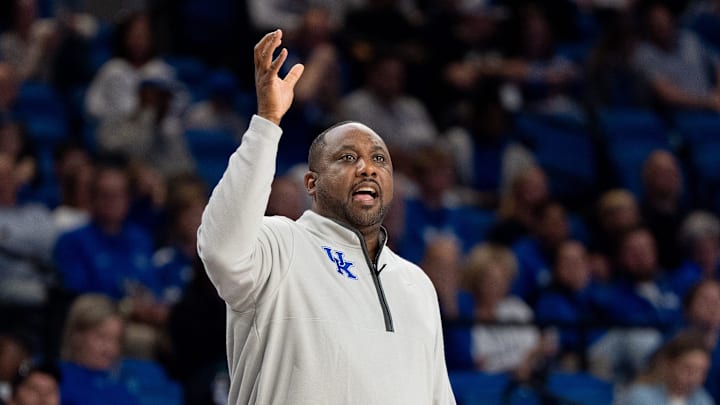A groundbreaking decision in Pavia vs. NCAA could dramatically reshape college athletics, and Kentucky teams stand to benefit. The court issued a temporary restraining order preventing the NCAA from counting two JUCO years as part of a player’s NCAA eligibility. This means athletes who spend one or two years at a junior college (JUCO)—whether due to grades, injuries, or the need for development—can still have a full four years of NCAA eligibility. They are still also eligible to redshirt.
🚨Breaking News
— TX TOP TALENT (@TXTopTalent) December 19, 2024
This ruling will allow JUCO players to retain all 4 years of NCAA eligibility! #TxTopTalent pic.twitter.com/1r9LNyohEf
This ruling is temporary for now, but if it becomes permanent, the impact on programs like Kentucky’s could be profound. For schools often building competitive rosters without an overreliance on five-star recruits, the change provides a crucial opportunity. Kentucky coaches like Mark Stoops (football) and Mark Pope (basketball) can focus on identifying JUCO players who may not have been top recruits but have proven themselves at the college level. Opening up new avenues for players to compete at non-traditional powerhouses or powerhouses.
The implications for Kentucky football’s ongoing efforts to build depth and talent are enormous. Stoops has excelled at finding diamonds in the rough and turning them into impact players over a few years in the program. With this rule, he could recruit JUCO players who need more time to develop, ensuring they can play four full NCAA seasons, but six years in college, potentially 7 with a redshirt. It also allows for greater flexibility in the recruitment process, reducing the risk associated with players who need time to adapt to the college game.
For Kentucky basketball, under Mark Pope, this could mean adding experienced players with polished skills to complement younger, high-profile recruits. JUCO transfers often bring a level of maturity and on-court experience that can help bridge gaps on rosters. Not only does this apply to football and basketball but every sport across the board, which is a great thing for the game.
More broadly, the rule change is a win for athletes across the board. It opens doors for players who might otherwise have had their careers cut short by eligibility limits. It’s not just about Kentucky—it’s about leveling the playing field in NCAA sports as a whole.
Pavia vs NCAA just changed the world of JUCO. This is just a temporary restraining order, don't know enough specifics if this ruling will be applied to ALL JUCO players moving forward. Essentially: judge ruled that NCAA can't count your 2 years of JUCO against 4 year NCAA clock. https://t.co/llToDQjo3Z
— Chris Fore (@chriscfore) December 19, 2024
While the temporary nature of the ruling means its future remains uncertain, the possibilities are exciting. Kentucky’s coaching staff will likely monitor the situation closely, ready to take full advantage of a system that rewards persistence and development over raw, early hype. Also not everyone is happy about the change:
2-years of JuCo football now doesn’t count against your 4 years of eligibility at the NCAA level.
— Jim Shapiro (@jimshapiro) December 19, 2024
How about D3 years don’t count towards D2 and D1 seasons. Haha.
The NCAA might as well start offering 401ks and pensions.
Kids are going to be in college for so long they are…
So doing two years at juco doesn’t affect your NCAA clock? Meaning you can do two years junior college and four years NCAA
— Langston Wertz Jr. (@langstonwertzjr) December 19, 2024
This is another crippling blow to high school. I think HS kids need to rethink their path to college. And quick
What side of the fence do you fall on, is this a good thing for college athletics?
